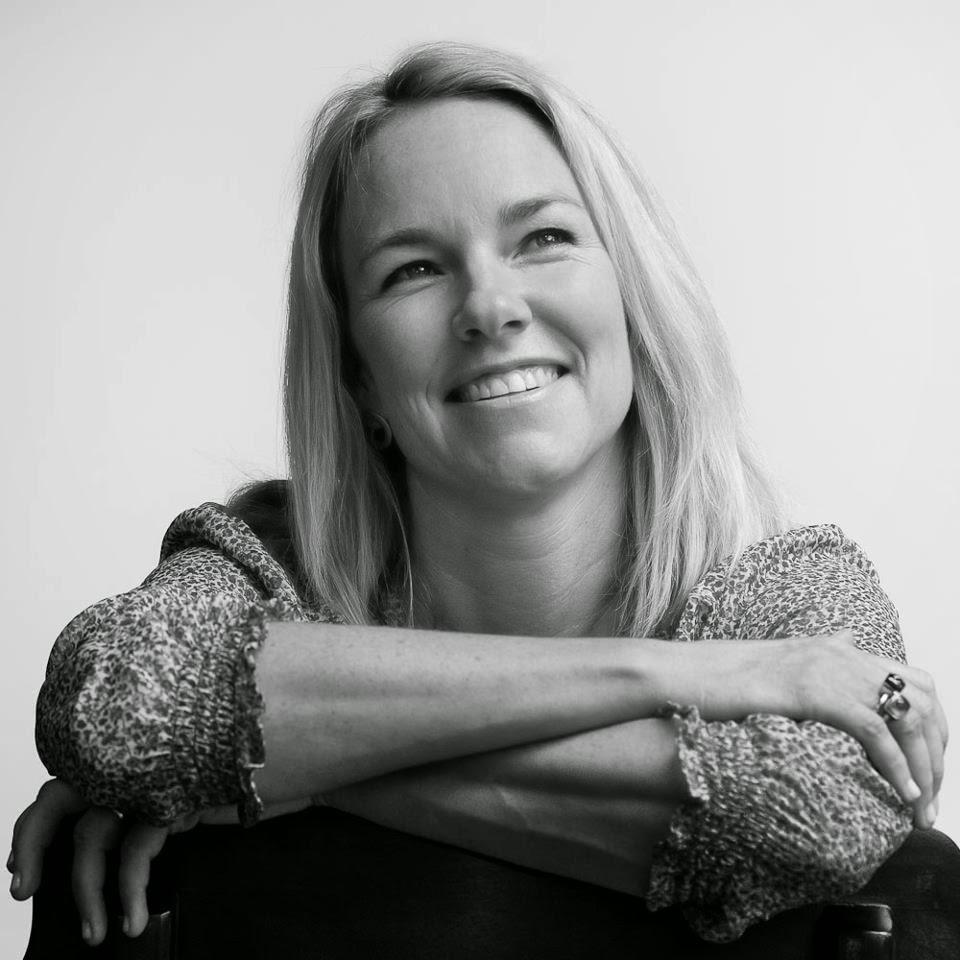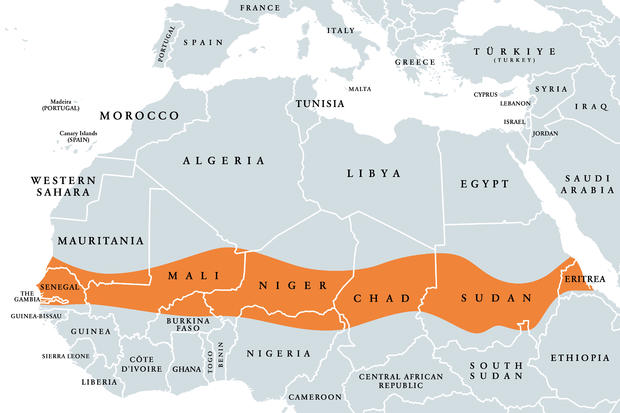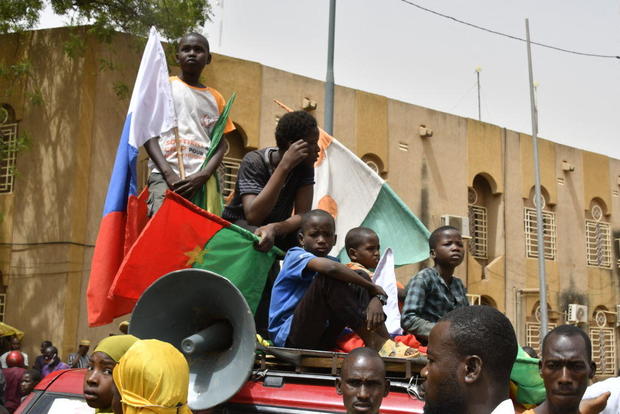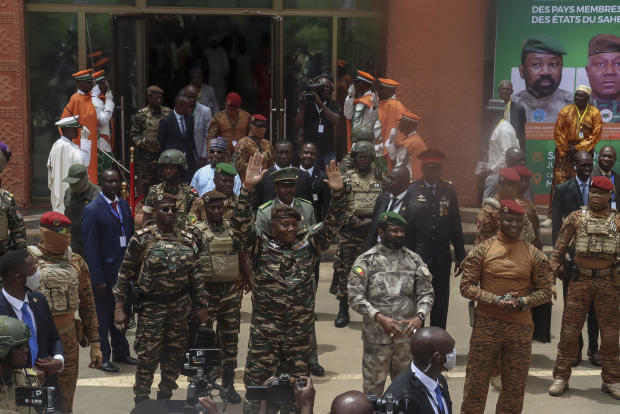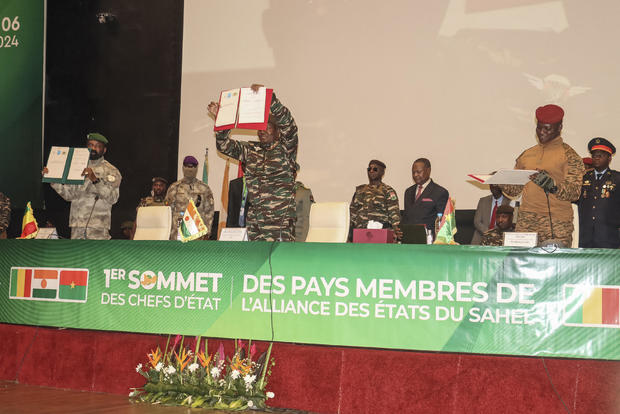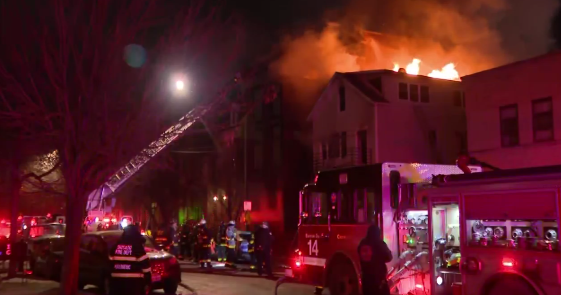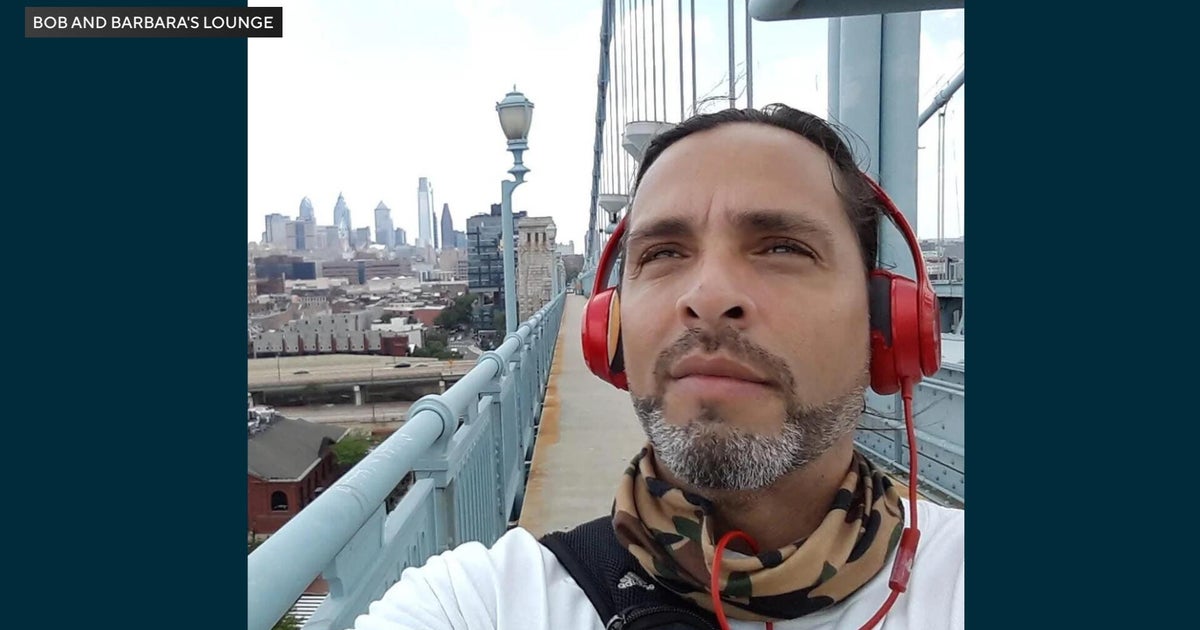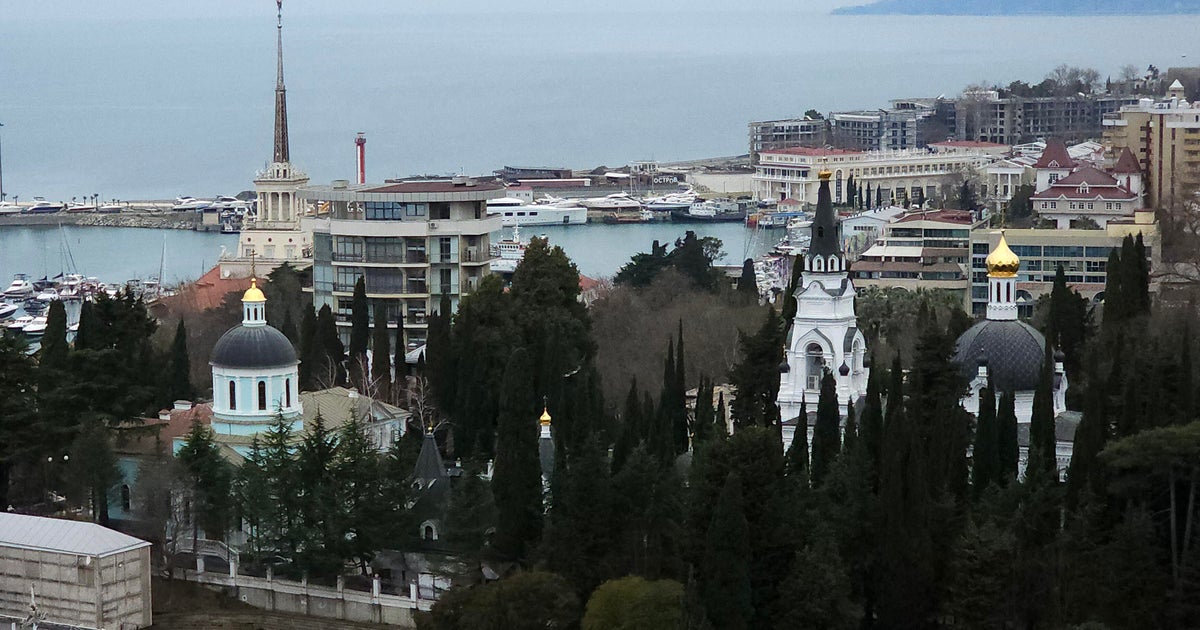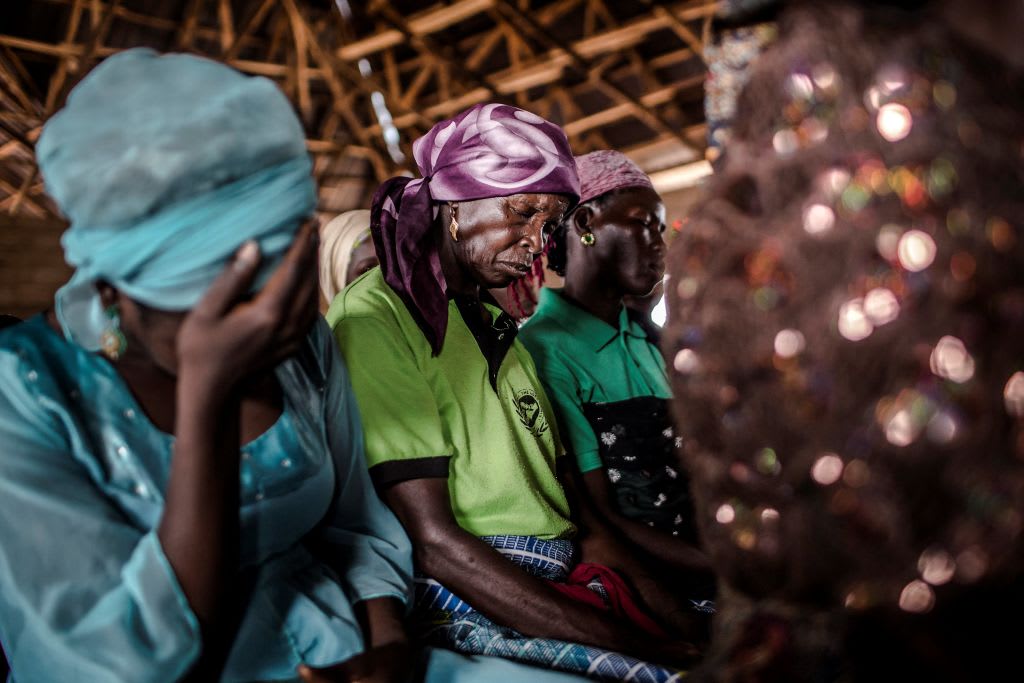Burkina Faso bans "homosexuality and associated practices" as Africa's coup belt lurches away from the West
Johannesburg — The military junta that seized power in Burkina Faso less than two years ago announced a law Wednesday criminalizing homosexuality.
"Henceforth homosexuality and associated practices will be punished by the law," Justice Minister Edasso Rodrigue Bayalawas quoted as saying by the AFP news agency.
It makes the West African nation the latest of the continent's 54 countries to follow a trend in banning same-sex relations. There are now only 21 African nations that do not explicitly prohibit same-sex relations. Uganda imposed the continent's most severe laws in May.
Brenda Biya, the daughter of Cameroon's President Paul Biya, came out as a lesbian in a post on her Instagram account last week, posting a photo of her kissing her girlfriend and saying: "I'm crazy about you and want the world to know."
"There are plenty of people in the same situation as me who suffer because of who they are," she said. "If I can give them hope, help them feel less alone, if I can send love, I'm happy."
Her father has been president of Cameroon since 1982 and has not changed the country's anti-LGBTQ laws, which have been in place since before he was sworn in. Brenda Biya told the French newspaper Le Parisien her parents were unaware of her sexuality and that she made the post without their knowledge, adding they had since asked her to delete it. She does not live in the country.
Disinformation in Africa's coup belt
General Michael Langley, Commander of the U.S. Military's Africa Command, voiced concern in a phone briefing with journalists at the end of June about the rapid slide of West Africa, a volatile region plagued by security and misinformation challenges, away from democratic values.
"There's a strong link between the scope of disinformation and instability," Langley said. "Getting the truth out there to counter disinformation is essential… Disinformation campaigns have directly driven deadly violence, promoted and validated military coups, and also cowed civil society members into silence."
The volatility Langley was referring to has been apparent across what's become known as Africa's coup belt.
First, there was Mali, where a military coup toppled the government in August 2021. Then Burkina Faso fell to military rulers in a September 2022 coup. Niger's government was overthrown by generals in July 2023.
Common history, and a new alliance
The three countries have a considerable amount in common.
They are still governed by military coup leaders. None has held elections since the uprisings. All three share common borders, a common French colonial history — and rising anti-Western sentiment, both in their leadership and their populations.
The three nations also face the same threats of violent extremism: Armed groups including ISIS and al-Qaeda affiliates have been fighting to gain territory in recent years in Burkina Faso, Mali and Niger.
Perhaps from these commonalities, an alliance was born: The Alliance of Sahel States was formed in September 2024 in the wake of these three countries asserting their independence from former colonial ruler France. They all left the regional ECOWAS bloc of nations and, in September, they signed the Liptako-Gourma Charter, the first of a few agreements that amount to a new defense pact between them.
The three coup leaders declared their new partnership a tool to form alliances with other countries that have not yet "exploited" their own resources. Some took that as a nod, if not an invitation, to nations such as Russia and Iran, where anti-Western sentiment has also been stoked by leaders for years.
Russia, in particular, has sought to extend its influence in Africa by investing in partnerships that often see security forces offered in exchange for access to natural resources.
"I think it's important that our African partners understand that what the Russians are offering is, maybe regime protection — it's certainly not national security," U.S. Ambassador to Ghana Virginia Palmer told CBS News in May. "What those countries are paying for that is extraordinarily high in terms of treasure. You know, young men and women's lives, and mining concessions, all those kinds of things. … The Russians are very transactional, and U.S. partnership is about development and security, and it's a real partnership, and I think those are very stark differences."
The members of the Sahel alliance have made it clear already that they view Western interests very differently, however.
"Westerners consider that we belong to them, and our wealth belongs to them," Mali's post-coup leader Colonel Assimi Goita, who was chosen to lead the new coalition of states from the Sahel, a vast region that stretches across Africa, was quoted as saying. "This era is gone forever, our resources will remain for us."
At the group's first summit last week, the partners ruled out returning to the nearly 50-year-old ECOWAS bloc, which has worked with the U.S. and other Western nations, and accused it of failing to curb the violence spreading across West Africa.
The West's eviction from West African nations
As the leaders met last week, the U.S. announced that it had pulled the last of its military personnel and hardware out of one its two bases in Niger, this one outside the capital, Niamey.
Sources tell CBS News the rest of the roughly 1,000 troops the U.S. had based in Niger, and its remaining equipment, will be pulled out of the $110 million Agadez drone base by the end of August, before the complete U.S. withdrawal from the country is completed in September.
Niger's leaders ordered the American forces to leave the country late last year. French troops left Niger and Burkina Faso in 2023, and Mali in 2022.
One U.S. defense official told CBS News the U.S. has longstanding relationships with all three of the Sahel alliance countries and that, while the current situation is "less than ideal," the U.S. is in it for the long haul because both the region and the entire continent are too important for American interests to ignore.
